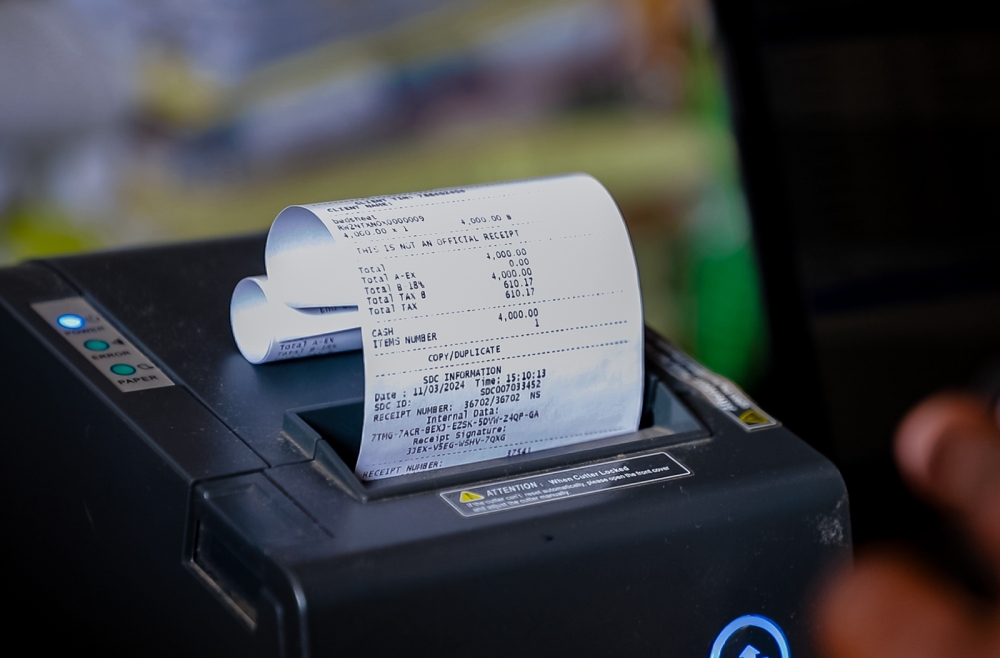

Rwanda Revenue Authority (RRA) has launched a nationwide campaign in collaboration with various agencies to promote the effective use of the electronic invoicing system, commonly known as the Electronic Billing Machine (EBM), designed to facilitate business control and issuance of electronic invoices.
Throughout this month-long campaign, teams of RRA employees will be visiting vendors at their workplaces to assess their adherence to EBM usage and to identify any challenges they encounter with its implementation.
On Monday, March 11, officials visited commercial areas such as Quartier Matheus in the City of Kigali, where they verified the proper use of EBM, cross-checking merchandise with corresponding invoices, while gathering feedback from vendors.
Emmy Mbera, Assistant Commissioner in Charge of Tax Control at RRA, noted the significant progress since the inception of EBM in 2013, with over 50 million invoices processed annually.
Initially mandatory for traders registered for value-added tax (VAT), EBM usage became compulsory for all traders in 2020. It has enhanced transparency for businesses and facilitated accurate tax collection by providing reliable data to RRA.
"Taking this into consideration, we can say that huge progress has been made. However, our analysis shows that there are still businesses that are non-compliant when it comes to EBM usage. That is the reason why we are launching this campaign, to inform consumers and traders that issuing an electronic invoice is complying with the law, and going against it is punishable.”
Despite progress, key challenges witnessed include some traders either lacking EBMs, not consistently issuing invoices, or failing to match invoices with sales. This undermines business integrity as those purchases do not enter EBM inventory, making it impossible to issue electronic invoices.
Mbera emphasised the importance of consumers requesting EBM invoices, as it ensures proper tax collection and contributes to national development. He urged consumers to report instances of EBM misuse, as penalties await non-compliant traders.
"I wish to remind that the value-added tax is paid by final consumers. This tax paid on different products is collected by traders, and the only proof that it will be submitted to the national treasury is having an EBM invoice,” Mbera said.
"This means, consumers should request an EBM invoice for every purchase and not leave the shop before it is issued. By doing so, they will be contributing to their national development, and that is our message for today,” he added.
Since 2013, VAT revenues have increased from Rwf 259.1 billion in 2013/14 to 699.3 billion Rwf in 2022/2023, equivalent to an increase of 170.0%. This also significantly increased the income tax, from Rwf 120.2 billion Rwf in 2013/14 to Rwf 538.3 billion in 2022/2023. As of now, over 94,000 traders are using EBM.
To incentivise EBM usage, the government recently approved a 10% reward on the value-added tax paid on each invoice. If a consumer is denied an EBM invoice and informs the tax administration, they are eligible for an additional reward equivalent to 50 per cent of penalties paid.
The law on tax procedures provides that a person registered for the VAT who sells goods or services without issuing an electronic invoice is liable to an administrative fine of 10 times the value of the evaded VAT. In case the act is repeated within two years, the defaulter is liable to an administrative fine of 20 times the value of the evaded VAT.


